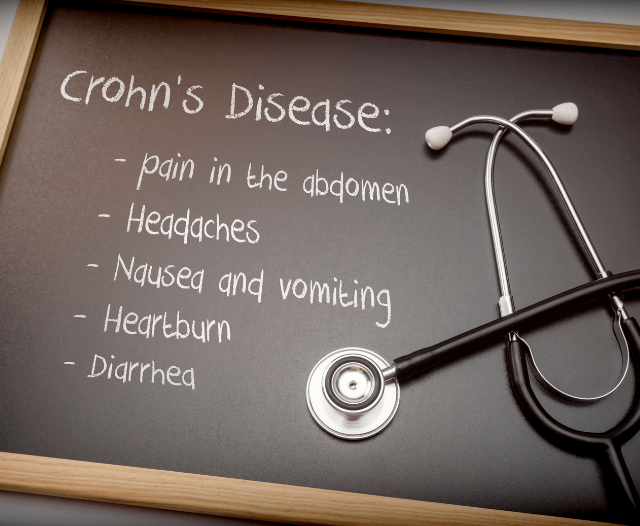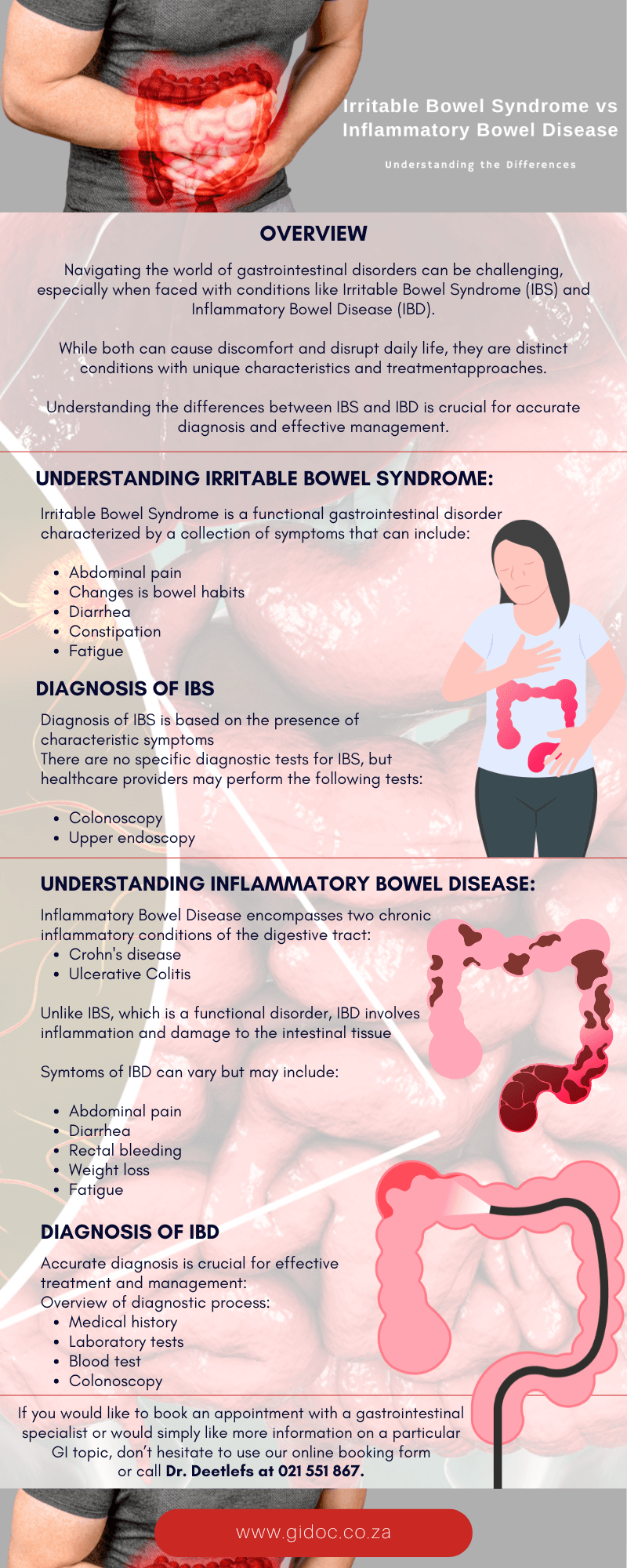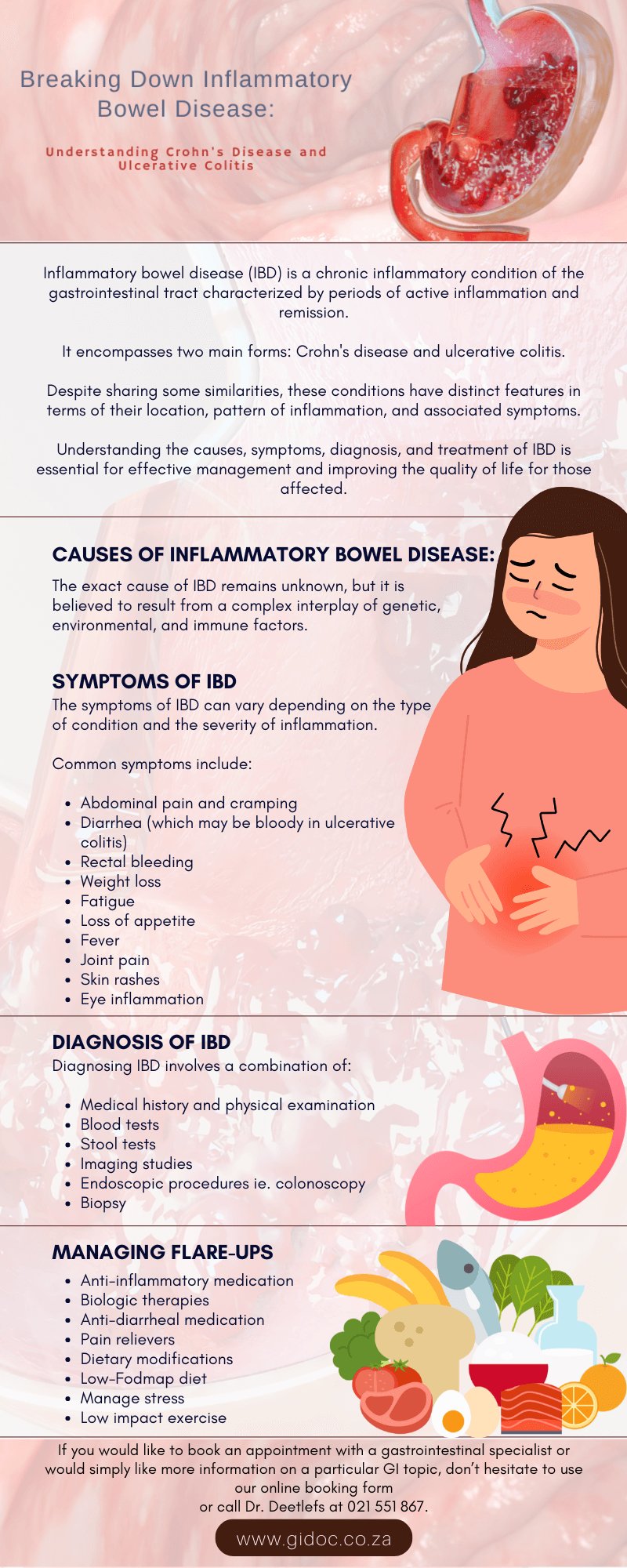
Gastrointestinal Procedures Offered by Dr. Deetlefs
Dr. Deetlefs is a renowned gastroenterologist specializing in a wide array of diagnostic and therapeutic procedures for digestive health.
Whether you’re experiencing discomfort, digestive issues, or you’re in need of routine screening,
Dr. Deetlefs offers several procedures to ensure accurate diagnosis and effective treatment.
This article explains some of the key procedures offered, including:
- Gastroscopy
- Double-Balloon Enteroscopy
- Colonoscopy
- Capsule Endoscopy
- ERCP
- Polypectomy
Gastroscopy
What is Gastroscopy?
Gastroscopy, also known as upper endoscopy or esophagogastroduodenoscopy (EGD), is a procedure that allows the doctor to examine the upper part of the gastrointestinal tract.
This includes the esophagus, stomach, and duodenum (the first part of the small intestine).
How Does It Work?
During the procedure, a long, flexible tube called a gastroscope, equipped with a tiny camera, is gently passed through the mouth and throat into the esophagus and down into the stomach and duodenum.
The camera transmits live images to a monitor, allowing the doctor to see the inside of your upper digestive system in real-time.
Why is Gastroscopy Done?
Gastroscopy is commonly used to:
- Diagnose conditions such as ulcers, gastritis, GERD (gastroesophageal reflux disease), and celiac disease.
- Investigate causes of persistent upper abdominal pain, nausea, vomiting, heartburn, or difficulty swallowing.
- Detect and treat bleeding, blockages, or tumors.
- Perform biopsies, or remove abnormal tissues for testing.
Preparation and Recovery
Before undergoing a gastroscopy, patients are usually asked to fast for several hours to ensure an empty stomach.
The procedure takes around 10 to 30 minutes, and mild sedation is typically used to make the experience more comfortable.
After the procedure, patients may feel some throat irritation, but recovery is quick, allowing most to resume normal activities later the same day.

Double-Balloon Enteroscopy (DBE)
What is Double-Balloon Enteroscopy?
Double-Balloon Enteroscopy (DBE) is a specialized endoscopic procedure used to examine and treat conditions in the small intestine.
The small intestine is a difficult area to access using standard endoscopy techniques, but DBE solves this problem by utilizing a unique method involving two balloons.
How Does It Work?
A thin, flexible endoscope fitted with two inflatable balloons is inserted into the gastrointestinal tract, either through the mouth or rectum, depending on the area being examined.
The balloons are alternately inflated and deflated, allowing the scope to be guided deep into the small intestine, reaching areas that would otherwise be inaccessible.
Why is DBE Done?
DBE is often performed to:
- Diagnose conditions like small bowel tumors, bleeding, Crohn’s disease, and celiac disease.
- Investigate the cause of unexplained anemia, chronic diarrhea, or abdominal pain.
- Treat and remove polyps or lesions in the small intestine.
Preparation and Recovery
Preparation for DBE varies depending on the route of the procedure (oral or rectal). Patients may be asked to fast and consume a special bowel-cleansing solution.
The procedure may last 1-2 hours, and mild sedation is provided to ensure patient comfort.
Recovery is similar to other endoscopic procedures, with most patients able to go home the same day.

Colonoscopy
What is Colonoscopy?
A colonoscopy is a procedure used to examine the large intestine(colon) and the rectum.
It is considered the gold standard in colorectal cancer screening because it allows for early detection and prevention through the removal of precancerous polyps.
How Does It Work?
A flexible tube with a camera (colonoscope) is inserted through the rectum and guided through the entire colon. The camera sends images to a monitor, enabling the doctor to inspect the colon’s lining for abnormalities, such as polyps, tumors, inflammation, or bleeding.
Why is Colonoscopy Done?
Colonoscopy is done for a variety of reasons, including:
- Screening for colorectal cancer or precancerous polyps.
- Investigating the causes of chronic diarrhea, constipation, rectal bleeding, or abdominal pain.
- Monitoring patients with a history of polyps, colorectal cancer, or inflammatory bowel disease (IBD).
Preparation and Recovery
The bowel needs to be entirely empty for the procedure, so patients will be asked to follow a special diet and take a bowel-cleansing solution beforehand.
Colonoscopy takes about 30-60 minutes, and patients are usually sedated. After the procedure, patients may feel bloated, but most recover quickly and can go home the same day.
If polyps are removed, they will be sent for analysis to check for cancer.

Capsule Endoscopy
What is Capsule Endoscopy?
Capsule endoscopy is a non-invasive procedure used to examine the small intestine.
Instead of a traditional scope, the patient swallows a small, pill-sized camera capsule that captures images of the digestive tract as it passes through the system.
How Does It Work?
The capsule contains a tiny camera that takes thousands of images as it travels through the gastrointestinal tract.
These images are transmitted to a recorder worn by the patient.
The capsule is naturally excreted during a bowel movement after the examination is complete.
Why is Capsule Endoscopy Done?
This procedure is used to:
- Diagnose conditions like small bowel tumors, Crohn’s disease, celiac disease, and unexplained gastrointestinal bleeding.
- Investigate causes of anemia, chronic diarrhea, or abdominal pain.
Preparation and Recovery
Patients are asked to fast for several hours before swallowing the capsule. Once swallowed, patients can go about their normal activities while the capsule works its way through the digestive system.
The procedure is completely painless and requires no sedation. Patients pass the capsule naturally, and there is no need for recovery time.

ERCP (Endoscopic Retrograde Cholangiopancreatography)
What is ERCP?
ERCP is a specialized procedure that combines endoscopy and X-ray imaging to diagnose and treat conditions affecting the bile ducts, gallbladder, pancreas, and liver.
How Does It Work?
A long, flexible tube (endoscope) is passed through the mouth, down the esophagus, and into the small intestine.
Once the scope reaches the bile ducts or pancreatic ducts, a contrast dye is injected, and X-rays are taken to examine these ducts for abnormalities such as blockages, stones, strictures, or tumors.
Why is ERCP Done?
ERCP is performed to:
- Diagnose and treat conditions like gallstones, pancreatitis, bile duct stones, and cancer of the bile ducts or pancreas.
- Insert stents to relieve blockages in the bile or pancreatic ducts.
- Remove stones from the bile duct.
Preparation and Recovery
As with most endoscopic procedures, patients need to fast for several hours before ERCP.
Sedation is provided during the procedure to ensure comfort.
ERCP typically takes 30-90 minutes, and patients may need to stay in the hospital for a few hours after the procedure for observation.

Polypectomy
What is Polypectomy?
Polypectomy is a procedure used to remove polyps (abnormal growths) from the colon or other parts of the gastrointestinal tract.
Polyps are usually benign, but some can become cancerous, making removal essential for prevention.
How Does It Work?
Polypectomy is often performed during a colonoscopy or gastroscopy. The doctor inserts a special tool through the endoscope to remove the polyp.
Depending on its size and location, the polyp can be removed using a wire loop (snare polypectomy) or by cutting it off with specialized instruments.
Why is Polypectomy Done?
Polypectomy is done to:
- Remove polyps that may become cancerous.
- Treat polyps that cause bleeding or obstruction in the gastrointestinal tract.
- Prevent colorectal cancer in high-risk individuals.
Preparation and Recovery
Polypectomy is typically done during a colonoscopy or gastroscopy, so the preparation is the same as for those procedures. Once the polyp is removed, it is sent to a lab for further analysis.
Recovery is quick, with most patients able to resume normal activities within a day.

Conclusion
Dr. Deetlefs offers a comprehensive range of advanced diagnostic and therapeutic procedures to ensure optimal digestive health.
From routine screenings like colonoscopy to more specialized procedures like double-balloon enteroscopy and ERCP, each procedure is tailored to provide precise results and effective treatment.
By staying at the forefront of gastrointestinal medicine, Dr. Deetlefs ensures that every patient receives the highest standard of care.
If you’re experiencing digestive issues or require a routine screening, contact Dr. Deetlefs today to schedule a consultation.
Early diagnosis and treatment are key to maintaining digestive health and preventing more serious conditions down the road.

Get in Contact with Dr. Deetlefs
If you would like to book an appointment with a gastrointestinal (GI) specialist or would simply like more information on a particular GI topic, don’t hesitate to use our online booking form or call Dr. Deetlefs at 021 551 867.
DISCLAIMER: PLEASE READ CAREFULLY
The information on this website is to provide general guidance. In no way does any of the information provided reflect definitive medical advice and self-diagnoses should not be made based on information obtained online. It is important to consult a Gastroenterologist or medical doctor regarding ANY and ALL symptoms or signs including, but not limited to: abdominal pain, haemorrhoids or anal / rectal bleeding as it may a sign of a serious illness or condition. A thorough consultation and examination should ALWAYS be performed for an accurate diagnosis and treatment plan. Be sure to call a physician or call our office today and schedule a consultation.
© Dr. Eduan Deetlefs, Registered Gastroenterologist, GI Doc Cape Town
Our website information is not intended or implied to be a substitute for professional medical advice, diagnosis or treatment. Please consult a doctor about your specific condition. Only a trained physician can determine an accurate diagnosis and proper treatment.




























